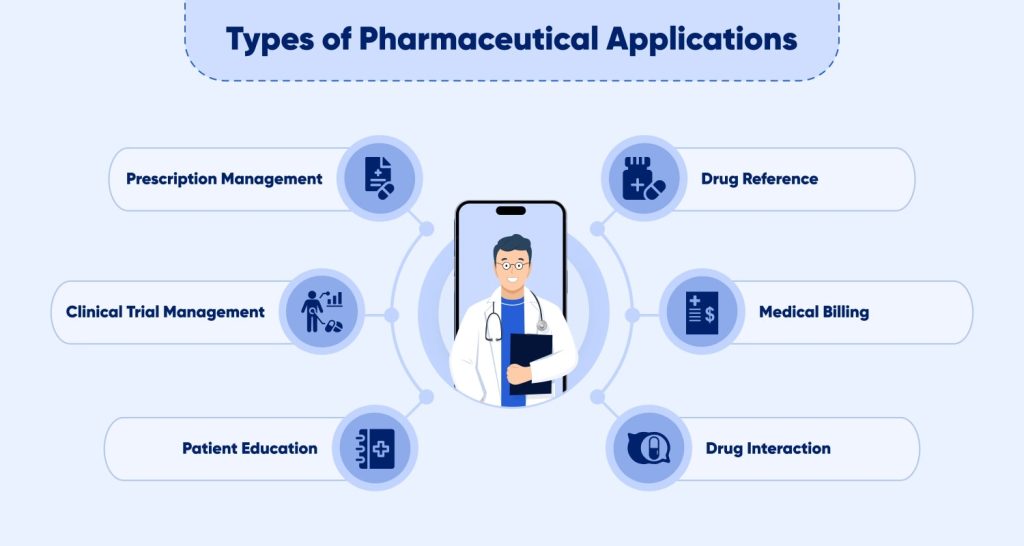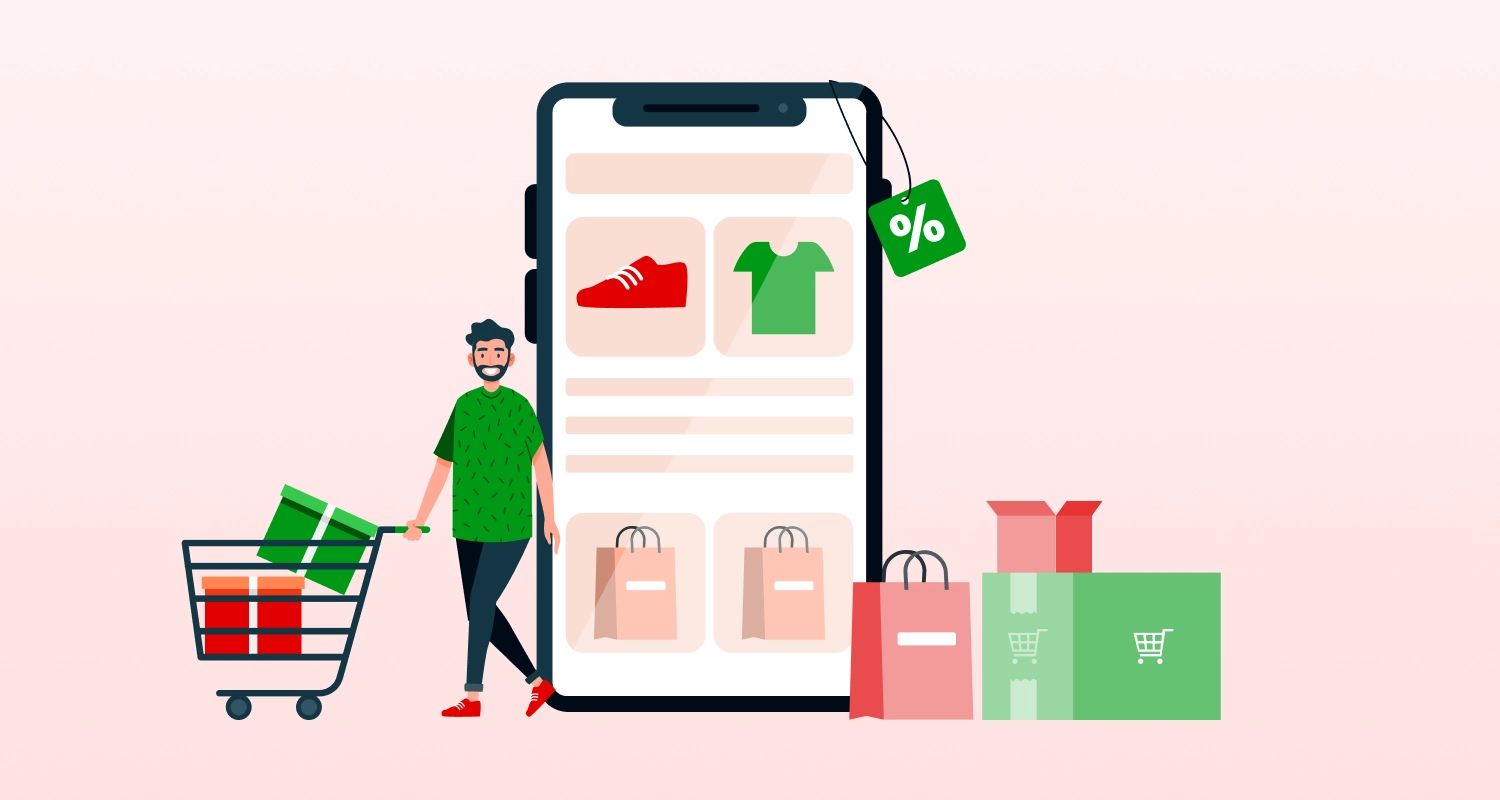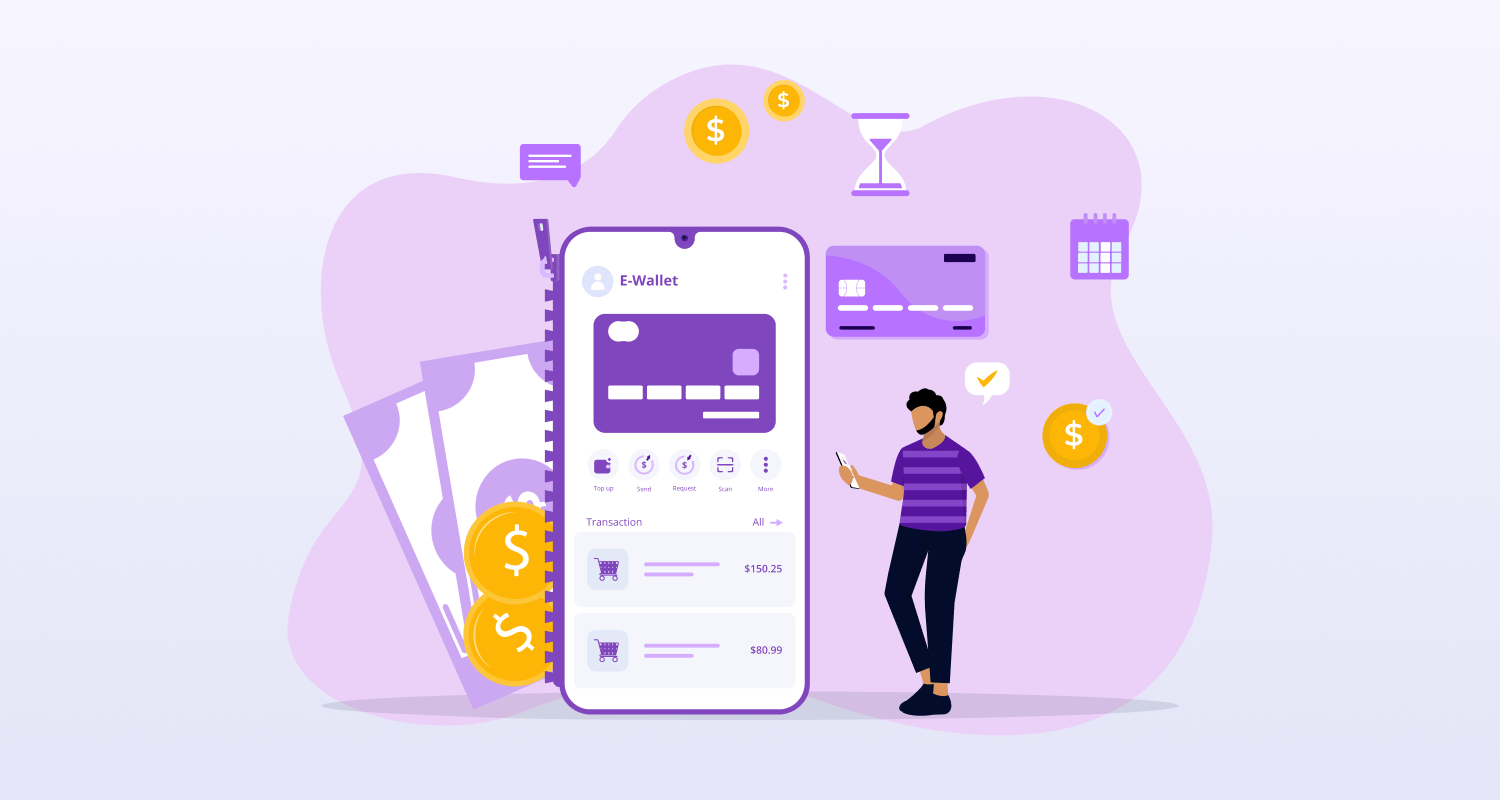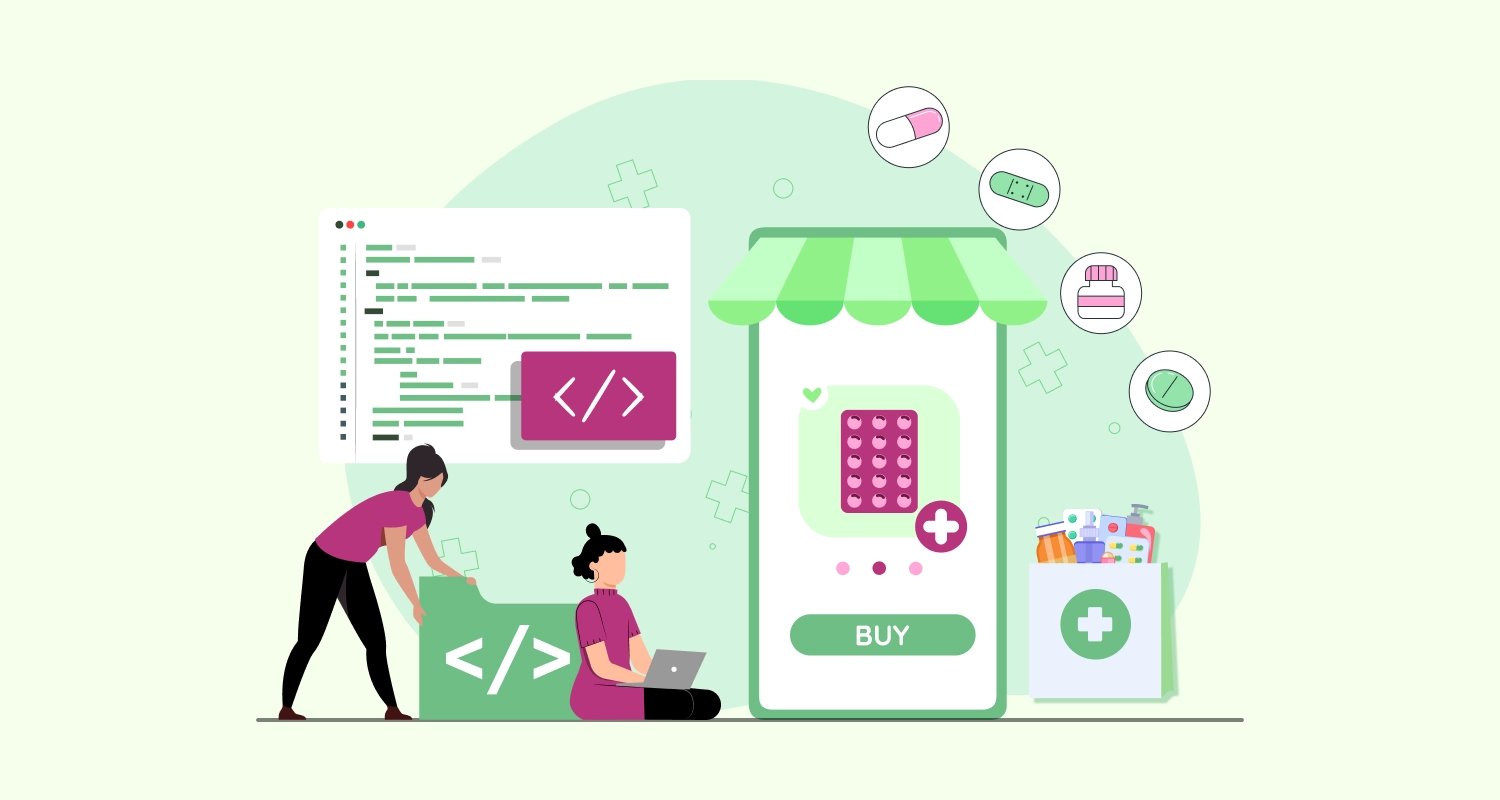The pharmaceutical industry can greatly profit from the introduction of mobile applications. In order to save time and avoid visiting the pharmacy, users can order and receive their medical care online.
It can help businesses cut back on expenses related to running and stocking a physical pharmacy. Additionally, it gives businesses a platform to manage orders and inventory with ease. Businesses may become more profitable and efficient as a result. Additionally, offering a more practical option for purchasing and delivering medication, can help businesses better serve their clients. In order to construct an application with your original idea, make sure you contact a reputable business that is into custom healthcare software development. This will assist you in creating a safe and dependable medical software solution that can reduce expenses and increase productivity.
It offers clients a more practical and affordable choice for obtaining and receiving medication. Customers can avoid leaving the convenience of their own homes by ordering their medications online and having them delivered directly to their front door. Moreover, individuals can frequently obtain their medication faster than if they had to visit a physical drugstore.
E-Pharmacy Industry Analysis and Perspective
The market for e-pharmacies was estimated to be worth USD 116.11 billion in 2020, and it is anticipated to grow to USD 219.8 Billion by 2028, at a CAGR of 20.1 % over the forecast period (2022 – 2028).
The worldwide e-pharmacy market is expanding as a result of a number of key factors, including the rising demand for digitised healthcare services and the increasing use of smartphones and other smart devices. Consequently, the demand for online pharmacy app development services will rise. Additionally, the market is anticipated to increase as a result of rising consumer concern over their health and well-being and the acceptance of digital payments. Additionally, it is anticipated that during the forecast period, there will be an increase in the number of partnerships between e-commerce businesses and online pharmacies.
However, the main obstacles limiting the market’s growth are the risk of data theft and privacy issues related to e-pharmacies. Other factors impeding market expansion include the strict government regulations and laws relating to the e-pharmacy business.
In my opinion, if a mobile app development service is handling your project, you won’t need to worry about any of these. You can concentrate on the other elements of your project while they take care of the mobile app’s development and testing. You can be confident that the app will be of the greatest calibre because they have skilled developers who are knowledgeable about creating and testing mobile apps. Furthermore, they frequently offer maintenance and support services, so you can be sure that your software will continue to work well and be updated.
Types of Pharmaceutical Applications

Pharmaceutical apps are online resources that support drug management. There is a wide range of options for this type of app, from those that help with medication management and prescription information to those that collect health data and educate users about potential drug interactions and negative effects. Some apps are made to make it simpler for users to comprehend their drugs and adhere to their doctor’s recommendations. Others urge people to take their meds on time and help folks remember to do so. Even more information on drug interactions and negative effects can be found in some apps. There is a pharmaceutical app out there to suit your demands, regardless of the kind you are looking for.
1. Prescription Management
The purpose of the Prescription Management Application is to assist medical staff in keeping track of their patient’s medications. Users of the application can keep track of patient data, prescribed medications, and the progress of each prescription. Additionally, it offers resources to make writing and filling prescriptions more efficient.
The programme often has attributes like:
– Patient Profile: Users can save patient data such as name, birthdate, contact info, and primary care doctor.
– Prescription Management: Users can keep track of the status of each prescription, including the date it was written and filled, the number of refills that are available, and the expiration date.
– Drug Interaction Checker: Users can use this tool to look up potential drug interactions and receive alerts if a patient is taking multiple medications that potentially interact negatively.
– Electronic prescribing: Users have the option of electronically writing prescriptions and sending them straight to the pharmacy.
– Refill Management: Users may keep track of which drugs require refills and when, as well as electronically order refills from the pharmacy.
– Reporting: Users are able to create reports to monitor patient medication compliance and use.
Healthcare practitioners can handle patient prescriptions more precisely and efficiently with the use of prescription management applications. By giving process-streamlining tools.
If you are considering a prescription management application, I believe it would be prudent to hire dedicated developers. This will enable you to work on the project with a group of qualified experts who are knowledgeable about the technology involved in the application. On the application’s development and execution, they will also be able to offer advice and direction.
2. Clinical Trial Management
Management of clinical trials can be made easier with the help of clinical trial management applications. They offer a thorough platform for handling duties associated with the conducting of clinical trials, including data collecting, document management, regulatory compliance, and reporting.
A clinical trial management application’s key characteristics are as follows:
– Data gathering: Users of clinical trial management software can gather, store, and examine patient data. Data from clinical studies, such as patient demographics, medical histories, and treatment schedules, are included in this.
– Document management: Clinical trial management software gives users a safe place to keep, arrange, and control all of the paperwork involved in conducting clinical trials. It also comprises study protocols, permission forms, and patient information.
– Regulatory compliance: Clinical trial management software gives users the tools they need to make sure their studies adhere to all relevant rules. This entails monitoring the enrollment and recruiting of patients, making sure informed consent forms are filled out, and disclosing unfavourable incidents.
– Reporting: Clinical trial management software offers users thorough reports to follow the development of their research. This covers information on enrolling patients, recruitment statistics, study results, and more.
– Security: Clinical trial management solutions offer users safe, encrypted storage and retrieval options.
3. Patient Education
The Patient Education Application is a cutting-edge software solution developed to assist healthcare workers in providing superior patient education and care. A number of features are offered by the programme, including interactive learning modules, patient-specific teaching materials, and individualised treatment plans. Because the application is adaptable, healthcare professionals can modify the instructional materials to match the unique needs of each patient.
The platform also has tools for keeping track of and monitoring patient health data, including lists of medications and lab results. Additionally, the app has a library of patient education resources that can be accessed on any device, including films, pamphlets, and handouts. By utilising this application, healthcare professionals may offer their patients better, more thorough patient education and care, which will improve their outcomes. Here are some of the characteristics of Patient Education Application
1. User-Friendly Interface: The program should have a clear, simple, and easy-to-use user interface.
2. Instructional Content: The application must offer current, pertinent, and specially tailored educational material to each patient.
3. Accessibility: The programme must be usable on all platforms and be offered in a variety of languages.
4. Personalization: By letting users make preferences, store progress, and track it, the programme should let users customise their experience.
5. Security: The application must maintain patient privacy and be secure.
6. Analytics: The software must include information that may be used by healthcare professionals to better understand and assist patients.
4. Drug Reference
A drug reference application is an online software programme that offers medical practitioners the most recent details on prescription drugs, drug interactions, dosages, and other information. When prescribing or dispensing pharmaceuticals, it is intended to assist physicians, nurses, pharmacists, and other healthcare workers in making educated judgements. Additional resources like patient education materials, drug safety alerts, and drug interaction checkers might also be made available by the application.
1. User-Friendly Interface: The application’s user interface should be simple to use and understand.
2. Comprehensive Drug Database: The application must have a comprehensive drug database that contains thorough details about each drug, including its indications, side effects, contraindications, interactions, and more.
3. Drug Interaction Checker: The application has to contain a tool that can help users spot potentially harmful drug interactions.
4. Customizable Search Options: The application should provide search options that may be customised so that users can quickly find the data they require.
5. Alerts and Notifications: When new data is added to the database, the application should be able to notify users by sending alerts and notifications.
6. Drug Administration Instructions: To ensure that users are taking their drugs properly, the application should offer drug administration guidelines as well as other useful information.
7. Patient Education Materials: To assist users in making knowledgeable decisions regarding their drugs, the application should include patient education materials as well as additional resources.
8. Regular Updates and Maintenance: To guarantee accuracy and dependability, the programme should be updated and maintained on a regular basis.
5. Medical Billing
Applications for managing medical billing and accounts receivable are software systems used by healthcare providers. The software assists providers in keeping track of their patients’ invoices, filing insurance claims, and producing reports. Applications for medical billing can be used to automate and streamline every step of the billing process, from submitting claims to monitoring payments.
These are the main things that a medical billing application does:
1. Billing and Claims Submission: The system’s software enables providers to input data on patients, the services they received, their billing codes, and their insurance coverage. A claim form that may be submitted to the insurance provider for payment is subsequently generated by the application.
2. Payment Monitoring: The programme monitors payments made by insurance companies and other payers and instantly changes the patient’s account. This enables providers to rapidly determine which claims have already been paid and which payments need to be pursued.
3. Reporting: Medical billing software generates a range of reports, including accounts receivable, payment, and claims status reports. These reports give insight into how well the billing procedure is working and assist providers in locating potential improvement areas.
4. Analytics: A lot of medical billing software comes with sophisticated analytics features like trend reports and predictive analytics. These attributes can aid providers in better comprehending their
6. Drug Interaction
Applications for drug interactions are designed to assist in the recognition and comprehension of probable drug interactions and their potential effects by patients and healthcare professionals. These systems offer users access to extensive drug interaction databases and include a range of features like alarms, warnings, and cross-referencing between drugs and allergies as well as drug-drug, drug-food, and drug-laboratory test interactions. Many also provide details about over-the-counter medicines, natural remedies, and dietary supplements.
1. Comprehensive Drug Database: A drug interaction application should have a searchable collection of prescription medications, including prescription and over-the-counter drugs. The application should list vitamins, and other non-prescription items, including herbal and dietary supplements.
2. Patient-Specific Data: To guarantee the correctness of the drug interaction information, the application should be able to collect patient-specific data, such as age, gender, and weight.
3. Interaction Alerts: When taking two or more medications together, the application should warn the user of possible drug interactions. The warning should outline any risks and negative effects that could result from the interaction.
4. User-Friendly Interface: The user interface needs to be user-friendly for patients and healthcare professionals to quickly and easily absorb the information.
5. Secure Storage: Using the proper encryption and authentication procedures, the application should securely store the patient’s drug information.
6. Reporting: To assist healthcare providers in identifying potential issues and making educated decisions about prescribing the right medication, the application should be able to generate reports on the drug interactions for each patient.
An on-demand app development company might be of great help in creating a drug interaction app. This on-demand pharmacy app development company can assist you from conception to execution. The app’s features include a drug interaction checker and a notification system for when a user is given a new prescription. The app will also offer details on possible harmful side effects and drug interactions. In order to provide more precise findings, the app can also be connected with existing medical records.
Things to take into account when creating a pharmaceutical application:
1. User Experience: It’s essential for pharma app developers to make sure that consumers like using their applications and have a hassle-free experience. Ensuring the app’s UI is user-friendly, responsive, and visually appealing is necessary to achieve this. The app’s navigation and search functions should be simple and straightforward.
2. Security: A pharmaceutical app must have security. It should be capable of safeguarding private information and should be built with security in mind. Additionally, the app must be able to recognise and stop any harmful activities, including illegal access, data theft, and other issues.
Pharma applications must be able to store and manage enormous amounts of data. Clinical trial information, patient records, and research data are all included. The software should be able to sync with other systems, such as EMRs, and store, organise, and retrieve data with ease.
4. Scalability: Your application must be scalable as it expands. This entails being able to increase the number of users and features without compromising security or performance. Additionally, it must be capable of processing numerous requests fast and effectively.
5. Regulatory Compliance: Pharma applications must abide by industry rules and guidelines. This means that any changes to the app should be tested and approved before being made public. The app should also be developed with compliance in mind.
6. Integration: Pharma apps must be able to connect to external systems including analytics platforms, EMRs, and more. This enables smooth data transmission and guarantees that users may quickly and easily get the data they require.
Performance is essential for any app, and pharma apps are no different. The app should handle large amounts of data and requests without any problems.
8. Availability: Pharma apps must be accessible around-the-clock, with little to no downtime. This means that a backup plan should be in place in case of any unforeseen failures, and the app should be developed with redundancy and failover in mind.
9. Support: Last but not least, pharmaceutical apps should offer 24/7 customer service. This guarantees that people may receive assistance when they do, and it also promotes loyalty and trust.
Compliance Considerations During Pharmaceutical Application Development
1. Comply with all applicable FDA regulations: This rule applies to all pharmaceutical applications, and it covers rules for drug production, labelling, and advertising.
2. Comply with relevant HIPAA regulations: In order to preserve patient privacy, pharmaceutical applications must adhere to applicable HIPAA standards.
3. Ensure data accuracy: Pharmaceutical apps should have features like built-in checks and double-checks that assist in ensuring data entry accuracy.
4. Include tools that help assure patient safety in pharmaceutical apps, such as dose calculators and alerts about medication interactions.
5. Make use of secure data storage: Pharmaceutical applications should store data securely on-site or in the cloud to safeguard patient information.
6. Ensure data integrity: Pharmaceutical applications need to be built with data integrity in mind, perhaps through checksum checking.
7. Include auditing features: Pharmaceutical apps should have options for tracking data entry, modifications, and deletions.
8. Use user authentication: To ensure secure access to patient data, pharmaceutical applications should demand user authentication.
Read More: Healthcare Web Development
Conclusion
In conclusion, the pharmaceutical application development sector is one that is expanding rapidly and presents numerous opportunities for both individuals and business owners. This industry offers a fantastic opportunity to use technology to develop original solutions and enhance healthcare results. Pharmaceutical application development can assist businesses in achieving their objectives while also enhancing the health and well-being of patients with the correct equipment, knowledge, and resources.
Frequently Asked Questions
How Do I Develop a Pharmaceutical Mobile App?
It will need a lot of preparation and research to create a pharmaceutical mobile app. You must take into account a number of things, including user experience, functionality, security, and regulatory compliance. Additionally, you should conduct market research to comprehend the requirements of your target market and compare competing products to make sure that your app offers something special and worthwhile. You can begin building the app once you are certain of what you want it to accomplish. To assist you in constructing the app, you might need to contact a pharmacy app developer. Once it’s finished, you must properly test it before submitting it to the appropriate app store for approval. To ensure that your app reaches your intended audience, you must sell and promote it.
How Much Does It Cost to Develop an Online Pharmacy App?
The scope and complexity of the project determine how much it will cost to design an online pharmacy app. An online pharmacy app may often be developed for between $30,000 and $70,000, depending on the features and functionality it includes.
Which Is the Best Pharmacy App?
The best pharmacy app depends on your needs. Some popular options include GoodRx, PillPack, Express Scripts, and Blink Health. Each of these apps offers different features and benefits, so you should research each one to determine which one is best for you.







